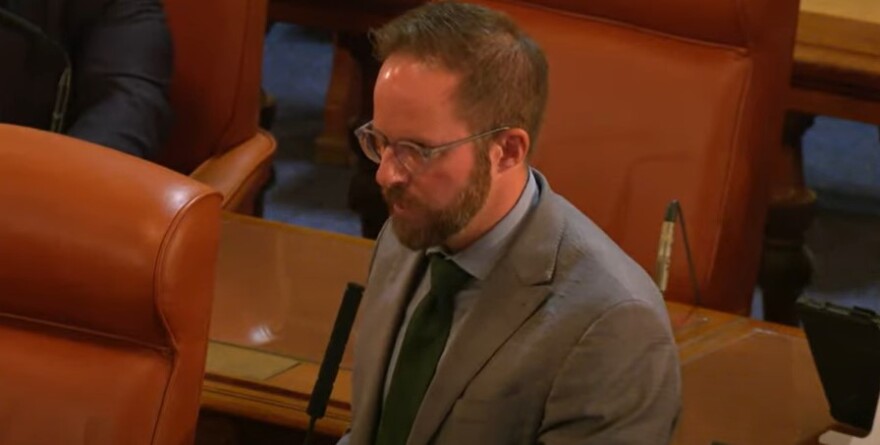The last month of public comment periods during Cleveland City Council meetings has been dominated by a seemingly innocuous topic: the construction of a new gas station on the city’s West Side.
Council Member Charles Slife said lobbying for one issue has become commonplace for public comment. He points to instances like the gas station debate in which one or two people sign up others to fill all ten weekly spots for their cause before other residents get the chance.
"My worry is that this crowds out opposing voices," Slife said. "This makes people who just want to address their government about any other issue, unable to participate in public comment and essentially takes public comments from a kind of citizen service to something more akin to an organized lobbying effort."
Each week, ten residents are allotted three-minute slots to address council ahead of their Monday meeting. Sign-ups for those spots are released at noon the prior Wednesday — and often are filled within minutes.
Slife is proposing a change to allow only one person to sign up for one slot: either for themselves or for someone else.
"This is not about limiting what we want to hear from the public," he said. "This is just making sure that everybody has the opportunity to address their government at the same forum."
Slife voted in favor of establishing public comment in 2021. Public comment periods are not required of government meetings, however, legal experts say if they are established, citizens are guaranteed full First Amendment rights, per the U.S. Supreme Court.
But council can — and has — altered rules to try to streamline public comment periods or comply with laws.
Last year, a resident whose microphone was cut during a public comment period sued city council, which prompted a rules change to better comply with the First Amendment.
Council also mulled other rules changes when pro-Palestine advocates flooded public comment slots for five months with the demand for a cease-fire resolution, which council ultimately passed.
"It was unsurprising to me that ten people were coming to speak against the war in Gaza just because it was such a large issue," Slife said. "But [the gas station] is a much more localized issue that wouldn't normally get this level of attention ... Not that it's good or bad... but all residents should have their voices heard."



